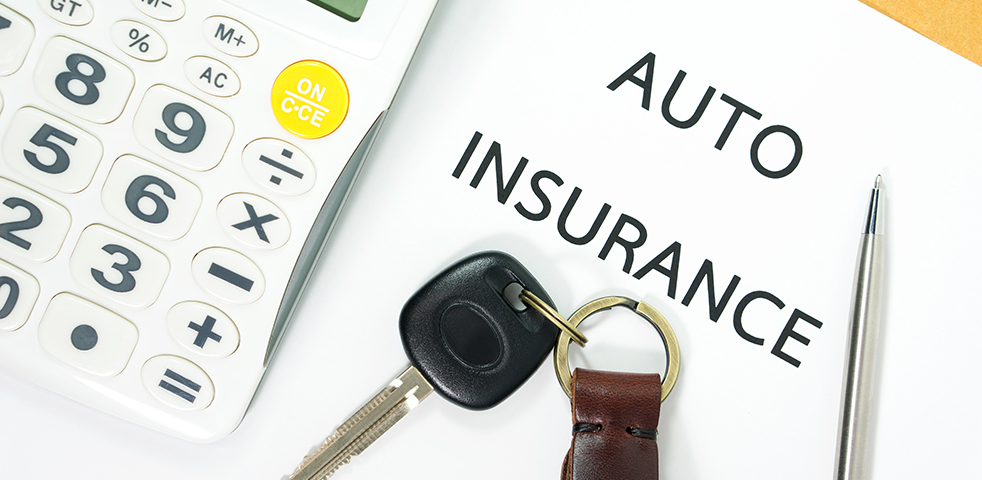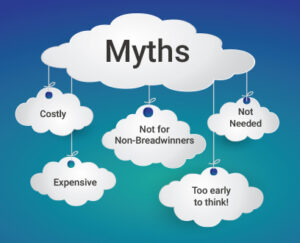The Impact of Your Driving Record on Auto Insurance Rates: What You Need to Know
Your driving record plays a significant role in determining your auto insurance rates. Insurance companies use your history behind the wheel to assess the level of risk they are taking on when they insure you. A clean driving record typically leads to lower premiums, while a history of accidents, tickets, or violations could cause your rates to increase. This article will help you understand how your driving record affects your auto insurance premiums and what you can do to keep costs manageable. We will also discuss other important aspects of car insurance and how your driving habits can influence your overall insurance costs.
Understanding Auto Insurance and Driving Records
Before diving into how your driving record affects your rates, let’s first look at how auto insurance works. When you purchase a policy, you’re paying for coverage that protects you in case of accidents, injuries, or vehicle damage. Insurance companies use various factors to determine your premium, including your driving history, the type of car you drive, where you live, and other personal factors.
The Importance of Your Driving Record
Insurance providers view your driving history as a key indicator of how likely you are to file a claim. If you’ve been in accidents or received traffic violations, insurance companies may consider you a higher-risk driver, which could increase your car insurance rates. Conversely, a clean driving record indicates to insurers that you are less likely to cause an accident, and they may reward you with lower premiums.
How a Clean Driving Record Affects Your Insurance Rates
A clean driving record is one of the most effective ways to keep your auto insurance premiums low. Insurers typically offer lower rates to drivers with a history of safe driving. Here’s why:
No Accidents
If you haven’t been involved in any accidents, especially at-fault accidents, you’re seen as a lower risk to the insurance company. Car insurance companies offer discounts to drivers who can demonstrate a history of avoiding collisions. Even a single at-fault accident can cause your rates to increase significantly. This is why it’s so important to avoid accidents and practice safe driving habits.
No Traffic Violations
Similarly, traffic tickets, such as speeding or running a red light, can increase your insurance rates. These violations indicate to insurers that you might be a risky driver. The more violations you have, the higher your premiums will likely be. Some violations, such as driving under the influence (DUI) or reckless driving, can have a long-lasting impact on your rates and even cause your coverage to be denied by some providers.
Insurance Discounts
Having a clean driving record can lead to various discounts. Many auto insurance companies reward safe drivers with reduced premiums. For instance, you may qualify for a “safe driver” discount if you haven’t had any accidents or violations in a certain number of years. This discount can range from 10% to 20% or more, depending on the insurer.
How Traffic Violations and Accidents Impact Your Insurance Rates
If your driving record isn’t spotless, you can expect higher premiums, and the impact of an accident or violation can vary depending on the severity. Here’s how different events can affect your auto insurance rates:
At-Fault Accidents
If you cause an accident, your insurer will typically have to pay for the damages, which means they may raise your rates to recover the costs. The increase can be significant, particularly if the accident results in extensive property damage or injuries. The more accidents you’ve been involved in, the higher your risk profile becomes, and the higher your premiums will likely be.
The severity of the accident, whether it involved injury, and your claims history all play a role in determining how much your car insurance rates will increase. Insurance companies may also take into account whether or not the accident was preventable. For example, if the accident occurred because of distracted driving, insurers might raise your premiums even further.
Traffic Violations
Receiving a traffic violation like speeding or a red-light ticket can have a direct impact on your auto insurance rates. The more violations you accumulate, the higher your insurance premium could rise. The increase is often temporary, especially if you’re able to avoid further violations. However, more serious violations, such as reckless driving or driving under the influence (DUI), can cause long-term increases in your car insurance rates.
If you have multiple violations or a serious violation, such as a DUI, you could be categorized as a “high-risk” driver by car insurance companies. As a result, it may be difficult to find cheap insurance, and you may be forced to pay significantly higher rates or even be denied coverage altogether.
The Role of Points on Your License
In many states, traffic violations result in “points” being added to your driving record. Accumulating too many points could lead to higher auto insurance premiums and may even result in your license being suspended. The more points you have, the more risk insurers see in you, and this is reflected in your rates.
Each state has its own point system, and the number of points required to affect your insurance rates may vary. However, drivers with a clean record generally pay lower premiums than those with points on their license.
How Long Will Violations or Accidents Affect Your Rates?
The impact of a violation or accident on your car insurance premiums isn’t permanent. Over time, as your driving record improves, your rates may decrease. However, the length of time it takes for your premiums to go back to normal depends on the severity of the incident and the policies of your insurer.
- Accidents: At-fault accidents generally stay on your driving record for three to five years, depending on the state. However, the impact on your rates may gradually decrease as time passes and you maintain a clean record.
- Traffic Violations: Most traffic violations stay on your record for two to three years. Minor violations like speeding tickets may have a temporary impact, while serious violations like DUIs can affect your rates for much longer.
What Can You Do to Lower Your Insurance Premiums with a Poor Driving Record?
If you have a less-than-perfect driving record, there are still ways to keep your auto insurance premiums manageable. Here are some tips:
1. Shop Around for the Best Car Insurance
Different car insurance companies evaluate risk differently, so it’s worth shopping around for the best car insurance quotes. Some insurers may be more forgiving of past violations or accidents, while others might offer competitive rates for high-risk drivers.
2. Consider Temporary Car Insurance
If you only need temporary car insurance, this can be a cost-effective option for short-term coverage. For instance, if you’re driving a rental car or need insurance for a specific period, temporary car insurance could provide a lower premium than a traditional policy.
3. Take a Defensive Driving Course
Many auto insurance companies offer discounts to drivers who complete a defensive driving course. Completing such a course can not only help you improve your driving habits, but it can also lower your rates by demonstrating to insurers that you are committed to safe driving.
4. Increase Your Deductibles
If you’re willing to assume more risk in the event of an accident, increasing your deductible can lower your premiums. Keep in mind that this means you’ll have to pay more out of pocket if you do file a claim, so make sure you can afford the higher deductible.
5. Maintain a Clean Record Moving Forward
The best way to lower your auto insurance rates in the long run is to maintain a clean driving record. As time goes by, the impact of past accidents and violations will decrease, and your premiums should gradually decrease as well. Safe driving is the best way to ensure that your rates stay low and affordable.
The Importance of Bundling Auto and Home Insurance
If you’re already dealing with a poor driving record, one way to save on your overall insurance costs is to consider bundling your home and auto insurance. Many auto and home insurance companies offer significant discounts for bundling multiple policies, and this can help offset the cost of higher auto insurance premiums.
Getting a home insurance quote and car insurance quote from the same company can lead to lower premiums for both policies, even if you have a poor driving record. By bundling, you’re not only saving money but also simplifying your insurance management with one provider.
Conclusion
Your driving record plays a pivotal role in determining your auto insurance rates. A clean record can help you save money on premiums, while accidents or traffic violations can cause your rates to rise. However, even if you have a less-than-perfect driving history, there are ways to reduce your premiums. Shopping around for car insurance quotes, considering temporary car insurance, and taking steps to improve your driving habits can help you maintain affordable coverage.
Whether you’re looking for the best car insurance, comparing home and auto insurance, or just trying to find cheap insurance, understanding the impact of your driving record is essential in making informed decisions. By staying safe on the road and regularly reviewing your insurance options, you can ensure that you’re getting the coverage you need at a price you can afford.
For more information visit the following sites:





